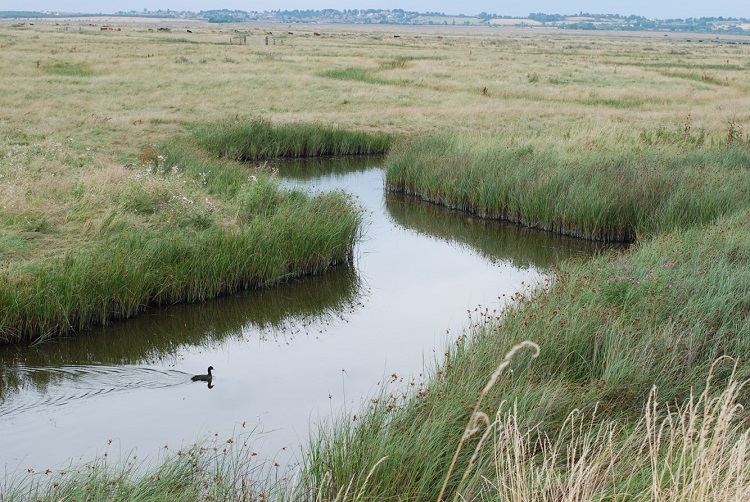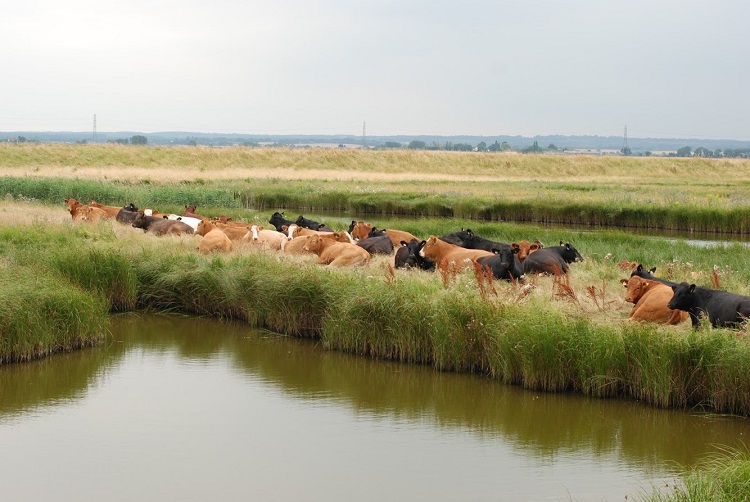
Wetlands, as their name suggests, are areas that are saturated with water, permanently or seasonally, existing at the interface between terrestrial and aquatic ecosystems. Why should wetlands matter to us? Marshes, swamps, bogs and fens, among other types of wetlands, are some of the world’s most biologically diverse ecosystems, with distinctive soil, plants and animals. They can also increase social wellbeing for people by providing food, water, transport networks and accessible greenspace. They play important roles in the environment: purifying water, acting as ‘carbon sinks’ to absorb carbon dioxide, ensuring shoreline stability and controlling floods. A key response to climate change in the UK has been the development of regional and national strategies for the provision of new wetlands to mitigate coastal and inland flooding. While new wetlands can bring many benefits, a potential side effect can be increasing habitats for biting insects such as mosquitoes. The University of Greenwich, including scientists from NRI, is leading a project called WetlandLIFE, which is investigating the cultural and economic values of English wetlands, with a particular focus on managing mosquitoes in wetland environments.
WetlandLIFE is a highly interdisciplinary project, bringing together social scientists, ecologists, environmental historians, artists and economists to understand the values associated with wetlands in the past, present and future. The project’s Principal Investigator and Director of the Greenwich Maritime Centre, Dr Tim Acott, based in the University’s Faculty of Architecture, Computing and Humanities, explains, “Wetlands have always been a part of the British landscape and have a really important role to play as places of work, leisure and relaxation, in protecting communities against climate change and flooding, and of course as habitats for wildlife. However, the creation or expansion of wetlands can cause concern in some communities associated with changing land use combined with a worry about the increase of unwelcome insects, such as mosquitoes. By using a variety of disciplinary approaches, we hope to understand the range of cultural, historic and economic values that emerge from wetlands, the concerns some have and how to best support the human health and wellbeing benefits that wetlands can provide.”
 Professor Gabriella Gibson of NRI is leading the ecology component in partnership with Public Health England. “Our specific focus is to improve wetland management by developing ecological guidance for identifying and managing mosquito populations. By working closely with the rest of the project team, we can integrate findings from across the disciplines to enhance our understanding and work towards ultimately supporting healthy wetlands that benefit all.”
Professor Gabriella Gibson of NRI is leading the ecology component in partnership with Public Health England. “Our specific focus is to improve wetland management by developing ecological guidance for identifying and managing mosquito populations. By working closely with the rest of the project team, we can integrate findings from across the disciplines to enhance our understanding and work towards ultimately supporting healthy wetlands that benefit all.”
The project team includes collaborators from the Universities of Brighton, Bristol and Cranfield, Public Health England and Forest Research, collectively providing a unique range of expertise for this holistic project. The project team will work at three case study wetland sites. NRI’s Dr Frances Hawkes is coordinating the project’s ecological fieldwork, in close collaboration with Dr Adriana Ford of the Department of History, Politics and Social Sciences at the University of Greenwich. NRI’s Professor Bob Cheke is providing expertise in human-biting insects.
 The three-year project is part of the ‘Valuing Nature Programme’, which aims to better understand and represent the complexities of the natural environment in valuation analyses and decision making. The work is funded by the Natural Environment Research Council (NERC) in collaboration with the Arts and Humanities Research Council (AHRC), the Economic and Social Research Council (ESRC) and the Biotechnology and Biological Sciences Research Council (BBSRC), reflecting the range of disciplines involved.
The three-year project is part of the ‘Valuing Nature Programme’, which aims to better understand and represent the complexities of the natural environment in valuation analyses and decision making. The work is funded by the Natural Environment Research Council (NERC) in collaboration with the Arts and Humanities Research Council (AHRC), the Economic and Social Research Council (ESRC) and the Biotechnology and Biological Sciences Research Council (BBSRC), reflecting the range of disciplines involved.
Dr Acott concludes, “This project gives us a fantastic opportunity to develop practical guidelines for wetland management that reflects an enhanced understanding of mosquitoes alongside the importance of wetlands for local communities. We hope that the project will deliver an evidence based approach for the development of sound environmental and social policies in the future.”

